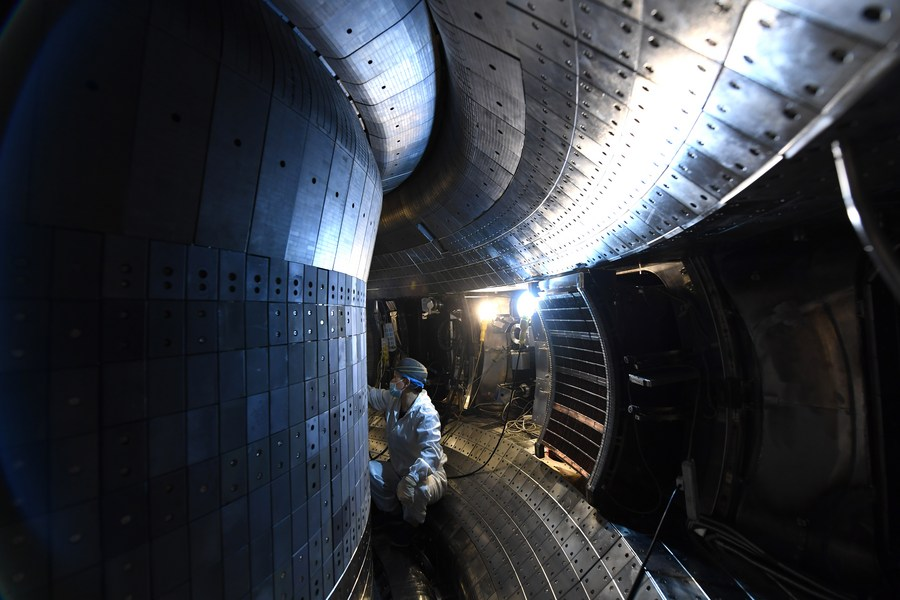SHANGHAI, Nov. 2 (Xinhua) -- China's scientific research started to develop rapidly about 40 years ago and is now at the world's leading level, and we are eager to cooperate with the country, said Jules Hoffman, the 2011 Nobel laureate in Physiology or Medicine, at a forum in Shanghai.
The 4th World Laureates Forum (WLF) kicked off on Monday and has brought together more than 130 top global scientists, including 68 Nobel laureates, who will participate through webinars and offline meetings in Shanghai.
Focusing on basic science promotion, international cooperation and youth development, the three-day event was co-organized by the World Laureates Association (WLA) and the China Association for Science and Technology.
In addition to the theme of open science, this year's forum has attached great importance to international scientific and technological cooperation.
Randy Schekman, winner of the 2013 Nobel Prize in Physiology or Medicine and also WLA vice chairman, expressed the importance of international cooperation in the field of basic science.
He said it is very important for scientists in the United States and the West to maintain continuous interaction with their counterparts in Asia, especially in China.
"China has invested a lot to develop the country's scientific infrastructure, and I believe it is most beneficial for us to communicate and cooperate with them," he added.
The forum also announced the establishment of the WLA Prize, which will be officially launched in 2022, with two individual awards each attached to prize money of 10 million yuan (about 1.56 million U.S. dollars).
Funded by donations from Chinese enterprises, the WLA Prize will focus on supporting original basic research and encouraging global scientists to better participate in and serve the common well-being of mankind.
Roger Kornberg, WLA chairman and winner of the 2006 Nobel Prize in Chemistry, said the WLA Prize proves that China attaches great importance to the development of basic science research, and he is confident that it will become a top global science award.
He also holds a positive attitude toward the prospects of the cooperation between China and the international scientific community.
"We work with our colleagues around the United States and Europe in different universities. As I know, the extent of such international cooperation between science in China and elsewhere has doubled in the last 10 years," he said. Enditem




 A single purchase
A single purchase









